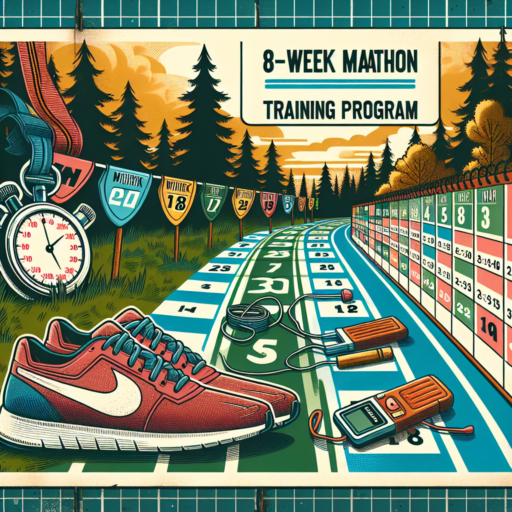How do I create a training plan for a half marathon?
Creating a training plan for a half marathon is an essential step in preparing for the race. It begins with establishing a solid foundation, which involves consistent training, adequate rest, and a balanced diet. Aim to allocate at least 12-16 weeks for your training, allowing your body to gradually adapt to the increasing demands. Initially, focus on building your weekly mileage at a comfortable pace, increasing it by no more than 10% each week to prevent injuries.
Integrate Variety into Your Training. To optimize performance and keep training engaging, incorporate a mix of long runs, speed work, and recovery days. Utilize long runs to increase endurance, speed work like intervals or tempo runs to improve your pace, and cross-training or rest days to prevent overuse injuries and promote muscle recovery. Remember, the diversity of your training regimen can significantly influence your race day performance.
Listen to Your Body. As you progress with your half marathon training, pay close attention to how your body responds to the increased activity. Be mindful of any signs of overtraining or injury. Prioritizing rest days and incorporating stretching and strength training exercises can help maintain your body’s health, ensuring you reach the start line in peak condition. Adjusting your training plan based on your body’s feedback is crucial for a successful and fulfilling race experience.
No se han encontrado productos.
How many weeks should you train for a half marathon?
The optimal time to train for a half marathon significantly depends on your current fitness level, running experience, and personal goals. Generally, a period of 12 to 14 weeks is recommended for most runners. This timeframe allows for a gradual increase in mileage, helping to build endurance while minimizing the risk of injury.
For beginners with little to no running experience, it might be wise to start with a 16-week training program. This extended period provides additional weeks to acclimate to regular running, ensuring a foundation is built before increasing distance. Throughout this time, incorporating rest days and cross-training activities can further enhance your abilities and prevent burnout.
Experienced runners, on the other hand, might opt for a more condensed 10 to 12-week schedule. Since these individuals already possess a solid running base, the focus can shift towards improving pace, strength, and running efficiency. No matter the training duration, integrating variety, such as hill workouts, speed intervals, and long slow distance runs, is vital to preparing effectively for race day.
What is ideal training for half marathon?
Training for a half marathon requires a balanced blend of endurance, speed work, and recovery. The ideal training program is one that gradually increases the distance of long runs, integrates speed workouts like intervals or tempo runs, and includes rest days to allow for recovery and prevent injuries. Starting with a strong base of regular running, at least a few months before the half marathon is crucial for success.
Long runs are the cornerstone of half marathon training, aiming to increase the runner’s endurance. These runs should be done at a comfortable pace, allowing for conversation. Gradually increasing the distance each week by no more than 10% is recommended to avoid overuse injuries. Additionally, incorporating one long run into your weekly schedule will simulate race conditions and improve mental toughness.
Speed work, including tempo runs and intervals, is essential for improving pace and cardiovascular efficiency. Tempo runs involve running at a challenging but manageable pace for a set distance, while intervals alternate between high-intensity sprints and recovery periods. These workouts not only boost speed but also increase the body’s ability to handle lactic acid buildup, a common challenge during races.
What is the 6 week half marathon training plan?
The 6 week half marathon training plan is an accelerated program designed for runners who have a base level of fitness and are looking to challenge themselves by preparing for a half marathon in a relatively short period. This plan typically includes a mix of running workouts, strength training, and recovery days to ensure a balanced approach to training that builds endurance and speed while minimizing the risk of injury.
This training regimen is structured to gradually increase weekly mileage and the distance of long runs, while also incorporating speed work, tempo runs, and hill workouts. It’s designed to push your limits safely and effectively, aiming to get your body conditioned and ready for the 13.1-mile race. Given the condensed nature of the plan, it emphasizes the importance of each workout and leaves little room for missed sessions, making commitment and consistency crucial.
Key Components of the Plan
- Weekly Mileage Build-Up: Starting with a comfortable baseline, the plan increases total weekly mileage steadily, peaking a couple of weeks before the race day.
- Speed Work: Sessions such as intervals or tempo runs are included to improve race pace and overall running economy.
- Long Runs: Critical for endurance, the length of long runs extends progressively, simulating race conditions and mental stamina.
- Recovery: Adequate rest days and easy runs are scheduled to prevent overtraining and facilitate muscle repair.
The effectiveness of the 6 week half marathon training plan hinges on a solid foundation of running experience and the runner’s ability to recover quickly. It’s not ideally recommended for complete beginners due to the demanding nature of the program and the risk of injuries with a rapid increase in activity. Runners are advised to personalize the plan according to their own fitness levels, and possibly consult a coach to ensure they are proceeding in a manner that’s healthy and sustainable.




